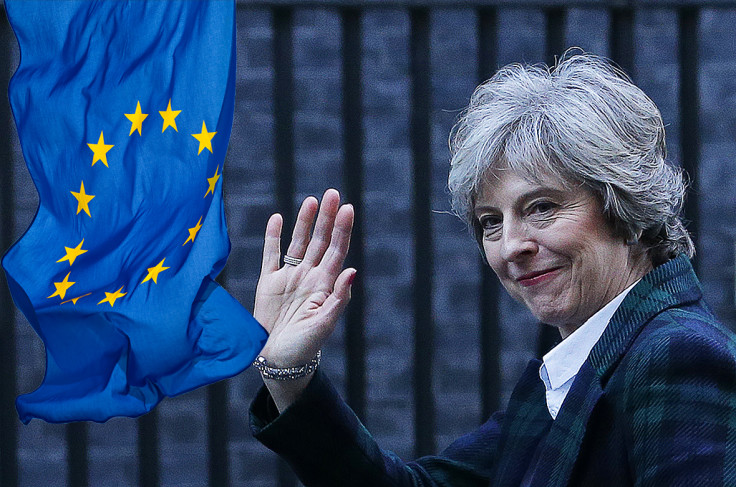Brexit: End of free movement for new EU migrants to UK when Article 50 is triggered
Early halt to free movement aimed at stopping EU nationals rushing to enter Britain pre-Brexit.
Prime Minister Theresa May is set to announce that EU citizens who move to Britain after Article 50 is triggered will no longer be entitled to the automatic right to stay in the UK permanently.
EU citizens will instead be subject to new migration curbs that will be put in place. This could possibly include a new visa scheme and restricted access to benefits, the Telegraph reports.
May is set to announce the end of the free movement of EU migrants on the same day she formally triggers Article 50, which will pave the way for Brexit negotiations with the bloc.
May will also hold firm to her earlier stance that EU migrants who arrived in the EU before the triggering of Article 50 will have their rights to remain protected as long as British citizens living in the bloc are giving the same protection.
The newspaper said that the "cut-off date" is expected to be 15 March, once the government's Article 50 Bill passes through Parliament.

May is also expected to ask other EU member states to reach a quick agreement on the issue of EU and British migrants in a bid to take the matter off the Brexit negotiating agenda.
The paper said that the UK has reached agreements in principle with most member countries but that some countries, including Germany, have refused to discuss migration until after Brexit is triggered.
The newspaper noted that while the EU wants the UK to delay any revision to rules on EU migrants to take effect in 2019, when the UK is expected formally to exit the bloc, there have been concerns that the two-year wait will only see a surge of EU migrants trying to enter the UK.
A government source told the Telegraph: "We have had some suggestion that the European Commission might attempt to force us to protect everyone who arrives up to the moment of departure [UK leaving the EU].
"We could end up with half of Romania and Bulgaria coming here if we wait that long," the source said.
Limiting access to benefits
Home Secretary Amber Rudd has said that after Britain leaves the EU, "we will be ending free movement as we know it."
She is looking at various options, including allowing multi-year visas to new arrivals with jobs in key sectors but at the same time limiting their access to benefits. She has said that the new immigration system to be put in place will only be decided on after "two years of negotiations and preparations".
Rudd acknowledged that the government does not want to implement a "cliff-edge system" which suggests that any migration controls could possibly be implemented on a limited basis initially after Brexit, the paper said.
"We are against cliff edges. So as part of the consultation that we will be bringing out in the summer, we will be asking them [businesses and employers] the best way to deliver that," Rudd said.
There are also reports that ministers are looking into plans to give the independent Migration Advisory Committee an advisory role on how many visas should be issued. The committee will decide on the number of visas that should be issued for those in key industries such as software engineering, health and social care, farming and hospitality - industries that are currently heavily propped up by immigrant workers.
© Copyright IBTimes 2024. All rights reserved.







